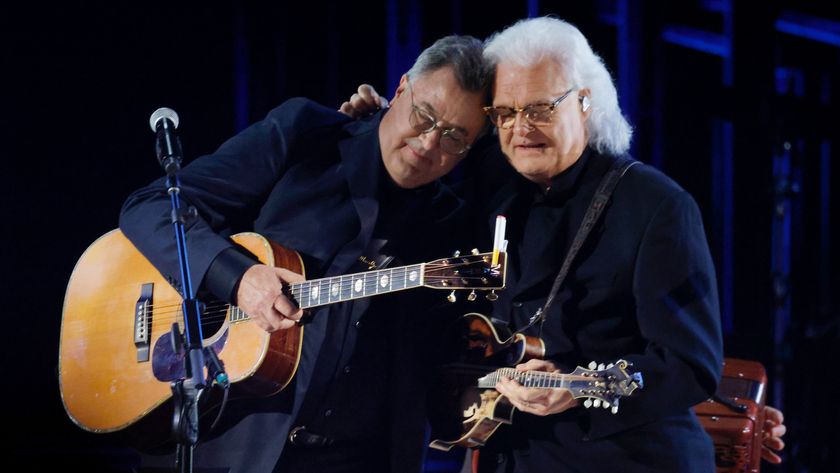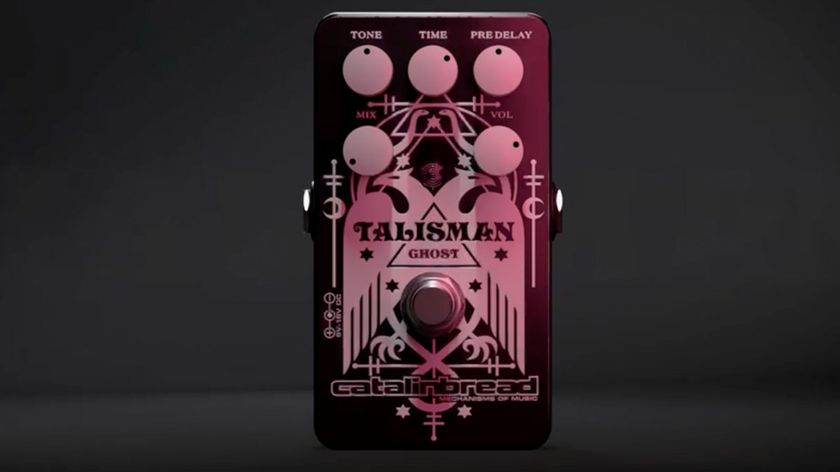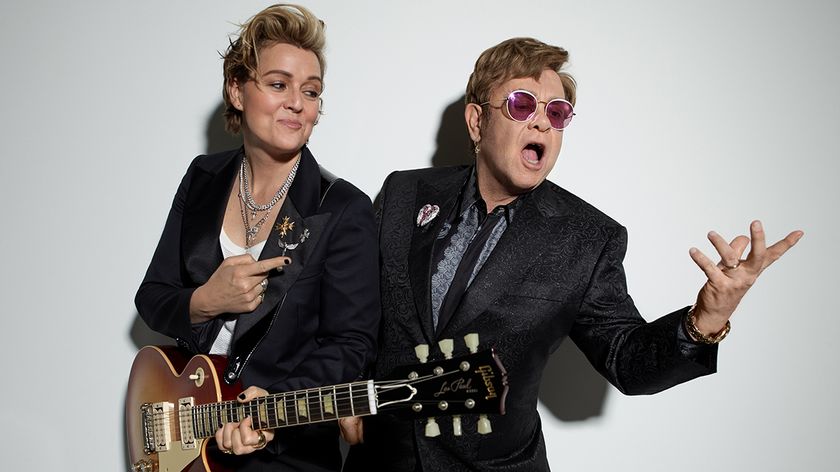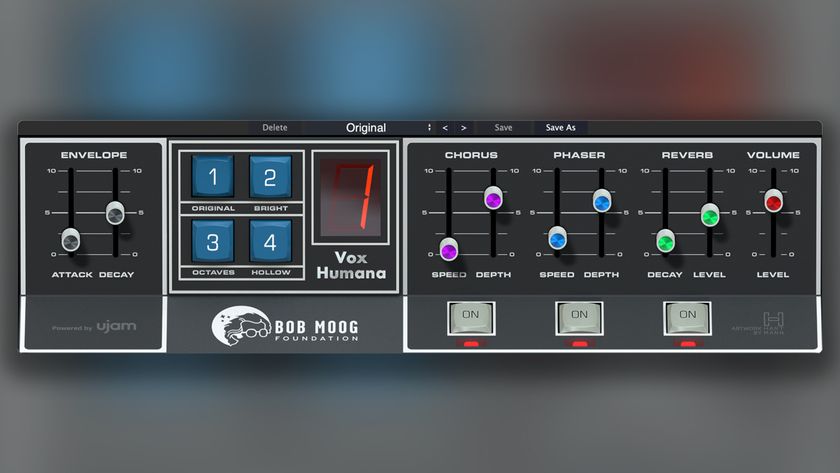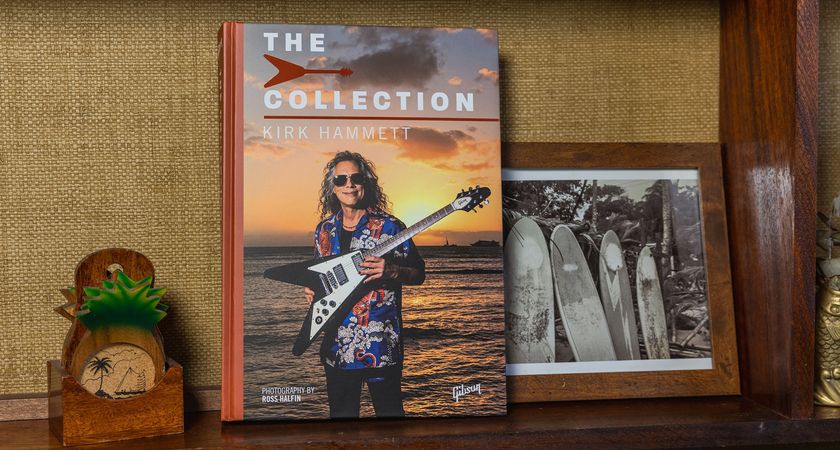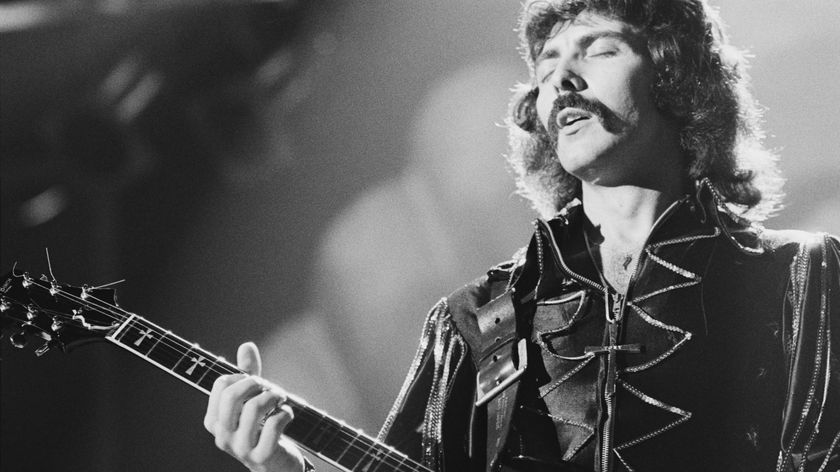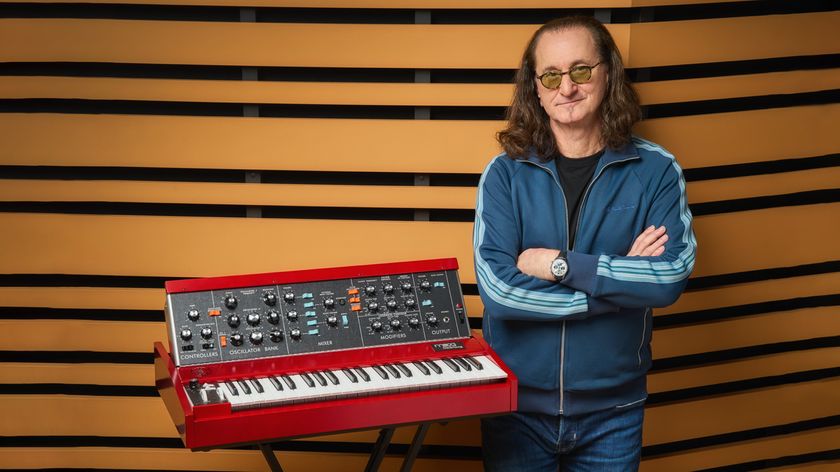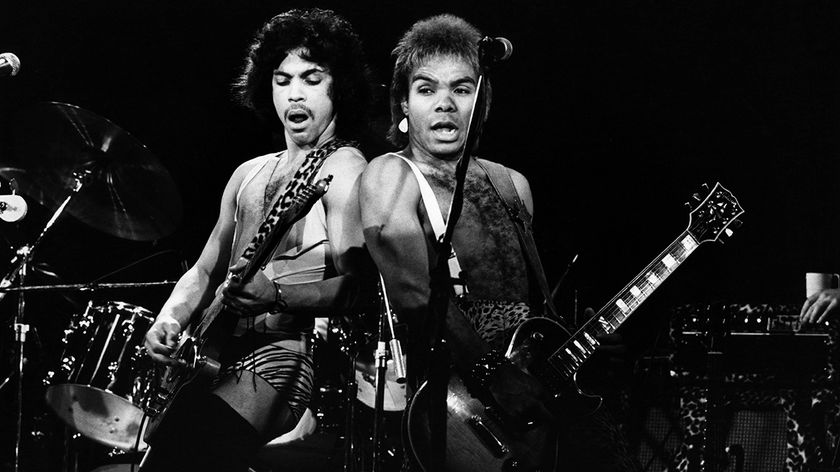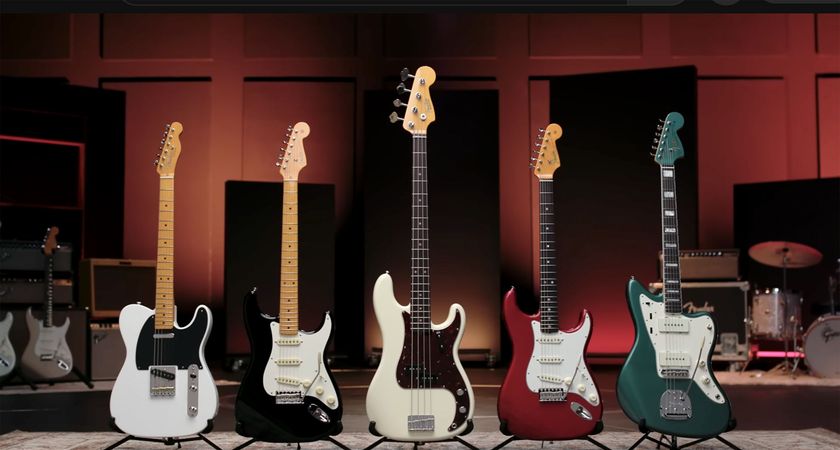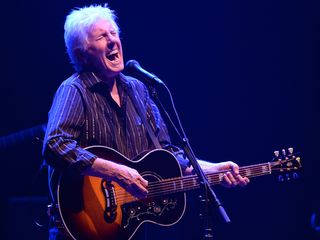
Graham Nash: the 10 records that changed my life
Three days after he took part in the Rock And Roll Hall Of Fame Music Masters Series to honor The Everly Brothers, Graham Nash is still buzzing about the event. "Don and Phil are heroes of mine," he says. "There's no way I would have missed out on that tribute. There was Vince Gill, Alison Krauss, Emmylou Harris, Peter Asher, myself and so many others, all doing the music of the Everlys. The feeling I got that night was the same as when I first heard Bye Bye Love at 15 years old. It was pure magic."
Although Don Everly attended the show, there was some doubt as to whether he would perform – he hasn't sung in public since the death of his brother Phil last January. "Everybody thought that Don would simply accept the award and leave the stage," Nash says, who then adds with a laugh: "Except for one thing – I was there.
"I had my arm around his back, and I never let him move," he continues. "I brought him to the middle mic, I started to sing, and I looked at him like, ‘OK, what are you gonna do?’ Don started to sing and the audience went crazy. It was such an emotional moment."
Bye Bye Love figures prominently in Nash's picks for 10 "life-changing" records, a list that, for the most part, reflects the mid-'50s/early '60s rock 'n' roll era when singles were still the dominant musical medium. "I do revere the time when albums became a true art form," Nash says, "but at the same time, I can't deny the power of those two, two-and-a-half minute singles.
"I was listening to some of The Hollies’ early singles and was absolutely floored at the energy we packed into those things. There wasn’t a lot of pre-production, nor did we have the time to mess about changing everything. You’d hit the studio and it was like, ‘Now! Get going and do it.’ That energy and electricity were undeniable."
Taking note of his choices, Nash spots something else that they all seem to have in common: “Certain songs have a way of making you grow, as an artist and as a person. So many of these songs shaped my own music, some directly and others by just the tremendous freedom they gave me. Great music can be a constant exchange of ideas, and it keeps going on and on: You hear something amazing, it affects you, and then you take that feeling and put it into your own work. I still love that. It keeps me going."
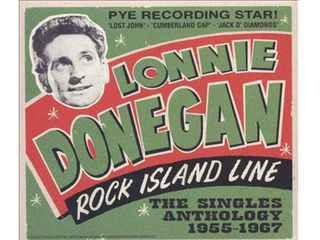
Lonnie Donegan - Rock Island Line (1955)
“When I first heard Rock Island Line on the BBC, it shook me like nothing before. Lonnie Donegan was a folk singer who had gone to America. He’d heard Leadbelly and Woody and all of those great people, and then he brought that music back to England and created a sensation.
“The energy in Rock Island Line was explosive. They weren’t doing four-track in 1955, so this was probably two-track, but it still knocked us out. You don’t need a million tracks to capture something this dynamic; you just hit ‘record’ and got out of the way.
“The record kicked off the skiffle craze in England. My friends and I talked about it all the time, as did everybody else: ‘So all you need is a cheap acoustic guitar and a washtub, and then get an old tea chest and attach a string to it with a broom. We can do that!’ It showed us this cheap way to make music. Skiffle was incredibly important to us. There wouldn’t have been The Beatles without skiffle. Probably none of us would have started making music.”
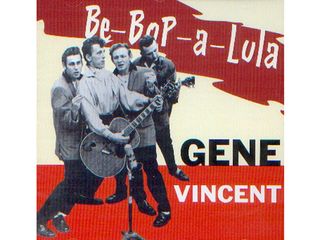
Gene Vincent And His Blue Caps - Be-Bop-A-Lula (1956)
“This was actually the first record I bought. When I first heard it, I just shit. [Laughs] It’s one of the greatest two-track recordings you’ll ever hear in your life.
“Here's a story that relates to my love of Gene Vincent: I had an argument with [former CBS president] Walter Yetnikoff once. I made an album called Earth & Sky for CBS. On the cover is a picture that my friend Joel Bernstein took of me in a canyon in Hawaii, where I live, with a double rainbow in back of me. A great picture. Only when I got the graphics back from CBS, there was a bar code at the end of my rainbow. 'What the hell was that?' I thought.
“I called Walter up and asked him what was up the bar code – why’d they just put that there? ‘It’s supposed to be a pot of gold at the end of a rainbow,’ I told him, ‘not a bar code. And tell you what? Next time I do a record for CBS, I’ll make the whole cover a fuckin’ bar code. How about that?’ Then Walter made a giant mistake. He said, ‘Don’t give me that artsy-craftsy shit.’ I was like, ‘What?’
“I called my attorney, Greg Fischbach, and said, ‘Get me off Columbia. Call up Capitol. If they leave me in the Capital Studios – you know, that big round building in Los Angeles? – and if they leave me there with Gene Vincent’s original two-track recording of Be-Bop-A-Lula, I’m theirs.’ And that’s exactly what happened. Anyway, it's a great record – I just love it to death."
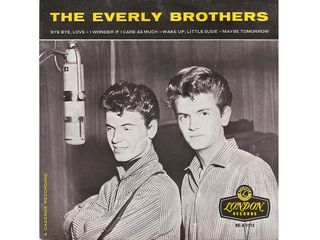
The Everly Brothers - Bye Bye Love (1957)
“I was 15 years old when I first heard The Everly Brothers. I was walking across the dance floor in Salford, and suddenly Bye Bye Love came on, louder than shit. It just shot through me – the sound, those voices. Everything changed in just a matter of minutes.
“Whatever this song did to me way back in 1957, I’ve wanted to do with my own music my whole life. I’ve wanted to make music that affected people that dramatically. The Everlys swept through England; they were bigger with us than they were in America. Same thing happened with Bill Haley, and to a certain extent, the same with Buddy. We just loved the Everlys. We’d never heard something so fresh and exciting and gorgeous.
“I was fortunate to become friendly with the Everlys – how’s that for cool? Don told me that his two favorite singers are me and Pavarotti. He said it was in that order, but I’m sure that if he had told Pavarotti that, he would have put me second.”

Billy Haley And His Comets - Rock Around The Clock (1955)
“We tore up the fucking movie theater. We ripped up the seats with stilettos and turned on the fire hoses. That’s what us teenagers in England did when we saw The Blackboard Jungle. It was an important sociological movement. Every school kid agreed with the anger that the kids in the movie were directing towards the status quo.
“And you couldn’t have picked a better opening song than Rock Around The Clock. I had heard about the song and knew that it was in the movie, but the first time I actually heard it was at a fun fare at Salford. I went with my friend Allan Clarke, and as we were walking around – you had the rides spinning, and people throwing coins in the goldfish bowels and all that – Rock Around The Clock came on.
“It stopped me in my tracks. What a song! Right there at this fun fare a song played and totally changed my life. You have to remember, my frame of reference at this point was Teresa Brewer and Patti Page; we had songs like How Much Is That Doggie In The Window? and stuff like that. Here comes this fuckin’ excitingly cool rock ‘n’ roll and just flushes that stuff away. Rock Around The Clock broke down a lot of walls. A very important song.”
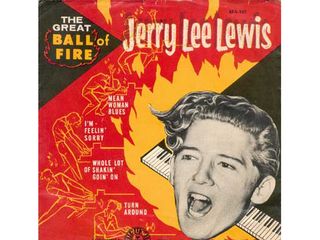
Jerry Lee Lewis - Great Balls Of Fire (1957)
“Talk about energy. Jerry Lee Lewis was very dangerous on many levels. There were rumors that he had killed a couple of people – you know, people say stuff. What ruined Jerry in England, when he lost people, was when he married that 14-year-old girl. That was a little too over the top for us.
“But Great Balls Of Fire – man, what an exciting song! I remember hearing the Sun Sessions and how Jerry Lee was reluctant to do the song. Sam Phillips was on him: ‘C’mon, Jerry Lee. You played it at soundcheck.’ ‘Oh, no, no, no. That’s the devil’s music. I can’t play that song.’ Sam stayed on him until he finally did it, and that’s the record they cut. Unbelievable energy.”
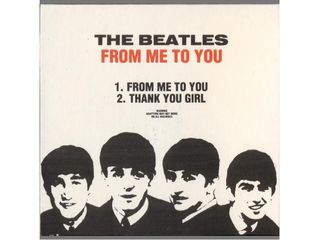
The Beatles - From Me To You (1963)
“I remember going to see Dick James, the Hollies’ publisher, who was The Beatles' publisher, as well. We’d have these weekly meetings to go over this and that. One day I was sitting in his office, and I saw this 45 acetate of a single – it was From Me To You. I asked him to put it on.
“I couldn’t believe the life and the spark in the recording. But there was something more: I felt an incredible sense of freedom when I heard the song. It was just magical. The Beatles turned a two-and-a-half minute pop number into something like an opera.
“They had already scored a few hits at this point, but this song seemed to have something different about it. It made a direct connection with me, and I think it’s because I wanted to say this very same thing to some girls. I wanted to say, ‘with love, from me to you.’ The Beatles made a pop song sound extremely personal. There was nothing else like it at the time. It had an intimacy that drew you right in.”
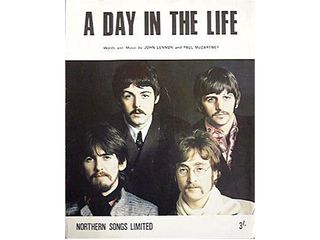
The Beatles - A Day In The Life (1967)
“The Beatles’ growth as a band was stunning. They only recorded for what, seven years? But what they did in that time is unprecedented. Their courage to keep changing was fucking incredible, and it was a real shot in the arm to the rest of us to aim high.
“Once again, I was in Dick James’ office, and there was an acetate of A Day In The Life in the room. This was before they put the orchestra on the record and before they put the piano at the end. I heard it when it only had their road manager, Malcolm, counting the bars in the build-up to the orchestral section. Even in its unfinished state, it knocked me out.
“Brian Epstein gave me one of the first copies of Sgt. Pepper before it came out. I played it for The Turtles and blew their minds. The entire album is a masterpiece – it was then and it still is – but A Day In The Life stands out as an extraordinary piece of music. It changed everything.”
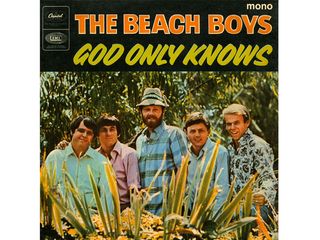
The Beach Boys - God Only Knows (1966)
“Another album that changed everything – Pet Sounds. Unbelievable songs and recordings, especially God Know Knows. It’s one of the most wondrous things I’ve ever heard. It had a huge impact on us, and it certainly influenced The Beatles. That’s a fact.
“I was at my place in London. I used to have this sound setup, which was a speaker in each corner of the room and two Brunell recorders. It was great – I’d lie in the middle of everything, drunk off my ass on Courvoisier and Coca-Cola, and I’d let the music envelope me. It sounded so wonderful. This was how I heard God Only Knows for the first time. A transcendental experience.
“It was immediately apparent that Brian had reached a new level. All of the songs could tell you which way he was going. In My Room, Surfer Girl – we had never heard vocals like that. God Only Knows was a real game-changer. When that song played, you knew that magic had flown into the room.”
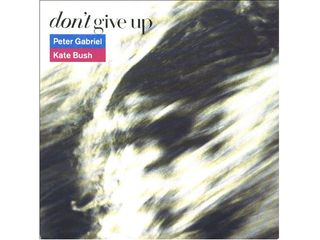
Peter Gabriel And Kate Bush - Don't Give Up (1986)
“An incredibly beautiful recording. Peter Gabriel is a genius, I think, and Kate Bush is no slouch, either. On this record, their voices come together in such a gorgeous way.
“But it’s what the song did for me that really matters. When you grow up with World War II still going on, with three or four more years still to go, and you’re in a society with people who didn’t know if their houses were going to be there the next day or whether their friends would be alive, it’s gives you a certain attitude that nothing could ever be as bad as this.
“When you grow up with that kind of sensibility, you learn that English people don’t give up. They get the job done. That’s how I am – it’s what my job in this fuckin’ band has always been. I get on with things and get the job done. I learned how to be that way as a kid, and it's stayed with me my whole life. So this song really speaks to that part of me. Don’t give up. It’s a simple line but a big, powerful and important sentiment.”
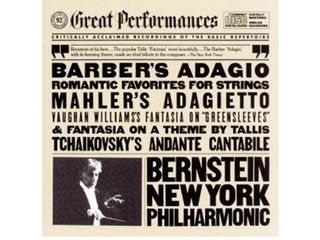
Leonard Bernstein and the New York Philharmonic - Adagio for Strings, op. 11 (1965)
“Leonard Bernstein conducted the New York Philharmonic on this recording of Samuel Barber’s composition, and it’s simply breathtaking. People know this recording even if they think they don’t know it. It’s been used in so many movies like Full Metal Jacket and The Elephant Man.
“This is the most stunning and emotional recording of classical music that I know. I love Beethoven, I love Mozart, I love Chopin, and on and on. I love all of them. But this particular recording tugged at my heartstrings and will not let go.
“I knew the music pretty much my whole life, but when I heard what Leonard Bernstein did with it, that’s when I knew he’d made the definitive version. It captures every mood and nuance beautifully. A very inspirational record.”

Joe is a freelance journalist who has, over the past few decades, interviewed hundreds of guitarists for Guitar World, Guitar Player, MusicRadar and Classic Rock. He is also a former editor of Guitar World, contributing writer for Guitar Aficionado and VP of A&R for Island Records. He’s an enthusiastic guitarist, but he’s nowhere near the likes of the people he interviews. Surprisingly, his skills are more suited to the drums. If you need a drummer for your Beatles tribute band, look him up.

"Reggae is more freeform than the blues. But more important, reggae is for everyone": Bob Marley and the Wailers' Catch a Fire, track-by-track

“Part of a beautiful American tradition”: A music theory expert explains the country roots of Beyoncé’s Texas Hold ‘Em, and why it also owes a debt to the blues

"Reggae is more freeform than the blues. But more important, reggae is for everyone": Bob Marley and the Wailers' Catch a Fire, track-by-track

“Part of a beautiful American tradition”: A music theory expert explains the country roots of Beyoncé’s Texas Hold ‘Em, and why it also owes a debt to the blues

